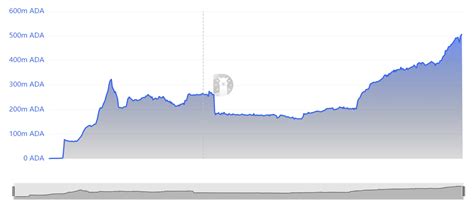Cardano (ADA) And Its Role In Digital Payments
Unlocking the potential of cryptocurrency: Cardano (ADA) Digital Payments
The cryptocurrency world has developed rapidly in the last decade, offering a new border for digital payments. Among the various cryptocurrencies Cardano (ADA) gained considerable attention to his innovative approach to decentralized finance (DEFI). In this article, we will deepen the role of Cardano in the field of digital payments and explore what makes it an attractive opportunity for users.
What is Cardano?
Cardano is a blockchain platform (POS) in 2017. Developed by Charles Hoskinson, one of the co -founders of Ethereum, Cardano aims to provide a more scalable, secure and efficient alternative to traditional cryptocurrencies such as Bitcoin. The local platform ADA cryptocurrency is used for a variety of purposes, including transaction rates, rates and management.
Cardano paper in digital payments
One of the most important aspects of Cardano is the focus on digital payments. The platform has been actively working to integrate cryptocurrencies into ordinary transactions, with a special emphasis on the use of ADA as a payment method.
In 2017, Cardano launched his initiative “PACT”, which aims to create a new ecosystem for decentralized applications (DAPPS). One of the main characteristics of the Covenant is the ability to integrate digital payments directly to blockchain. It allows users to easily send and receive cryptocurrencies without the need for intermediaries, such as banks.
Ada as a digital payment method
Cardano Ada is widely accepted as a payment method on different line platforms including:
1
PayPal : Cardano advertisement is accepted by PayPal as an alternative to its traditional fiduciary currency payment system.
- Bitstamp : Luxembourg -based cryptocurrency exchange allows users to purchase and hold ADA through their platform.
3
LocalBitcons : Decentralized market cryptocurrencies for buying and selling, including ADA.
CARDANO Benefits for Digital Payments
Using ADA in digital payments offers a number of benefits including:
1
Comfort : No need to change the fiducial currency or trust the intermediaries such as banks to the deal.
- Security : Transactions are made in a decentralized network, reducing the risk of hackers and cyber attacks.
3
scalability

: Cardano consensus mechanism allows faster transaction processing compared to traditional blockchain platforms.
- Low Rates : The level of transactions is usually lower than other cryptocurrencies such as Bitcoin.
Challenges and opportunities
Although Cardano has achieved significant achievements in the digital payment world, challenges still need to be addressed:
1
Adoption Level : ADA adoption level is still relatively low compared to other cryptocurrencies.
2.
3
scalability : Current Cardano scalability restrictions can potentially prevent their ability to process large volumes of transactions.
However, Cardano’s options are wide:
- Market Raising Market : As more companies are starting to adopt cryptocurrency digital payments, the demand for Ada will probably increase.
- Partnership and cooperation : Cardano has established a partnership with a number of important companies, including PayPal and Bitstamp, which could help increase its platform.
Conclusion
Cardano (ADA) has made significant progress in the field of digital payments, offering a unique approach to decentralized finance (DEFI). Focusing on convenience, security, scalability and low rates, ADA is an attractive option for users looking for alternative payment methods.